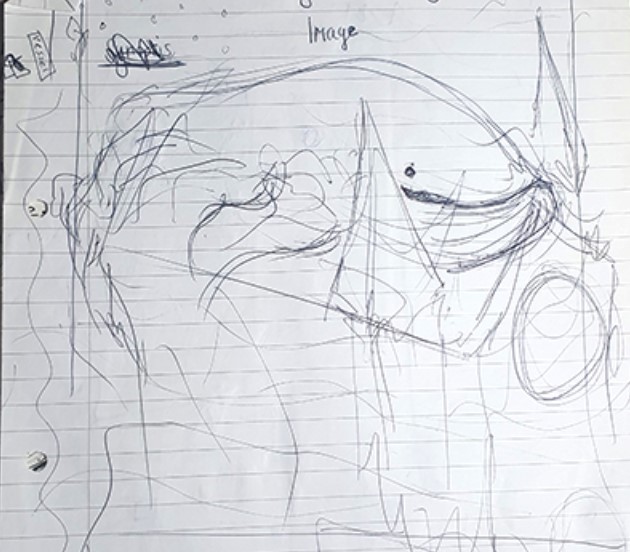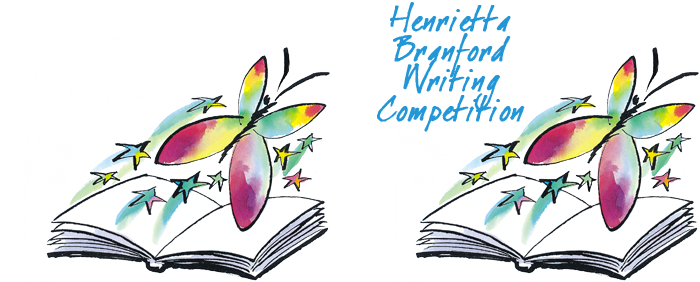Q&A with author Struan Murray

Orphans of the Tide has unforgettable, dramatic scenes, a unique setting, and our judges were impressed by the big ideas explored too. Where and how did the book start?
It began in 2015 when I was searching for story ideas, and scribbled a doodle of a whale on a rooftop. I was captivated by the idea: how did the whale get there, and why, and what would happen if it died? A few gruesome YouTube videos later, I learned that when whales die on land, they build up with gas, until eventually the pressure is too great… I knew then exactly how I wanted my story to begin: with the threat of an exploding whale.
At the time I’d been toying with another idea, about a young, Da Vinci-like girl inventor, only I couldn’t find my way in to the story. With this new idea, I realised I would need a character with enough ingenuity to cut the dead whale open to stop it from exploding. So I joined the two ideas together to create Ellie Lancaster, a young inventor living in a drowned city, where whales swim through the submerged streets.

What was the most challenging thing about writing the book? What aspect of it are you most proud of?
There is a lot of darkness in the book, themes of grief and shame and loneliness, and one big challenge was giving the book enough warmth and humour to balance these out. The friendships between the children in the story were key to this, especially Anna, Ellie’s grouchy, violence-obsessed, fiercely loyal best friend. She had a smaller role in the first draft, but early readers liked her so much that I fleshed out their friendship, making it the heart of the story.
Creating a world from scratch can sometimes be overwhelming, but working with my editor Ben made this much less burdensome as he believed in the world as much as I did, sometimes even more, and his commitment to the world and his imagination was an essential part of creating a rich and believable universe for the characters.
Most of all, I always wanted this to be a story that hits hard emotionally, and I’m proud that it seems to have succeeded in this: I’ve had lots of readers of all ages tell me that certain parts were particularly affecting or made them cry. All authors want to make their readers cry. Even if they claim otherwise.
Your day job is lecturing in Biochemistry at Oxford University. How does your other career affect your writing?
Mostly just by keeping me sane, I think! Writing can feel lonely at times so it is nice to interact with students and give the author part of my brain a rest, and I often find that when I come back to writing I am suddenly full of ideas or ways to fix particular problems in a manuscript.
What was the thing you most enjoyed about working with your editor Ben on the book? Why?
What I enjoyed most about working with him was his total passion for telling the best possible story. He accepted nothing less than the best I could do. Ben is also extremely attentive to detail — nothing gets past him. As an author this can be really mind-bending, but it is wonderful for the book. No plot hole, however small, and no inconsistency in the world-building, escapes his notice.
I always wanted this to be a dark story, as those were the stories I liked most as a young reader, but Ben helped me to figure out exactly where the line was between acceptably dark and too dark. Though I may have crossed this line in a few places — there was one moment when we were listening to the audiobook being recorded, and we reached one of the darkest scenes, and Ben turned to me and said, ‘I can’t believe I let you keep that part in’. I’m very proud of this.
What advice would you give to debut authors?
A lot about the fate of your book is out of your control, once it’s published. This can be wonderful, and terrifying, and I think debut authors should prepare for a bit of a rollercoaster of emotions, especially when they realise that their book is out in the world, living its own life as it were. What is so magical about the process is the range of interpretations and emotional reactions that readers have, and being even a small part of that is a huge honour.
Q&A with editor Ben Horslen

What most excited you about Struan’s manuscript when you first read it?
Like many of his readers, I was completely hooked by the opening image of a whale stranded on the rooftops of a sunken City. It was so striking and unexpected I had to read on. Then, of course, we meet Ellie, who is one of the greatest main characters I’ve ever come across. And finally there was The Twist, which I can’t say anything about (because, spoilers) except that it’s been amazing seeing and hearing about kids’ reactions to that moment.
What would you say are the requisites of the best adventures?
Camaraderie, jeopardy and good weather – nobody wants to go an adventure where it rains all the time.
What were the main things you worked on with him as editor?
We spent a lot of time on world-building – ensuring that the society of the City made sense, establishing the myths behind the Drowning (a cataclysmic event in the distant past), and the ‘rules’ of the magic system. We knew that this was going to be the first in a series, so it was particularly important to lay strong foundations for future books, including hints and threads that lead forward into the next instalment.
What do you enjoy most about being an editor?
The variety is brilliant – one day you can be editing a funny illustrated chapter book; the next, an epic YA fantasy – but it’s the collaboration that I particularly enjoy. Whether it’s problem-solving, brainstorming new ideas or talking through the cover brief, I just love working in tandem with authors, designers and my fellow editors.
What advice would you give to debut authors?
The same as the late Terry Pratchett, who said, ‘The first draft is just you telling yourself the story’. I’ve never come across better. Getting to the end of the first draft is in many ways the hardest part of any book, so don’t make it any harder than it needs to be!
Orphans of the Tide by Struan Murray, illus by Manuel Sumberac, is published by Puffin, 978-0241384435, £7.99 pbk.
Thank you to Struan Murray and Ben Horslen for answering our questions.




